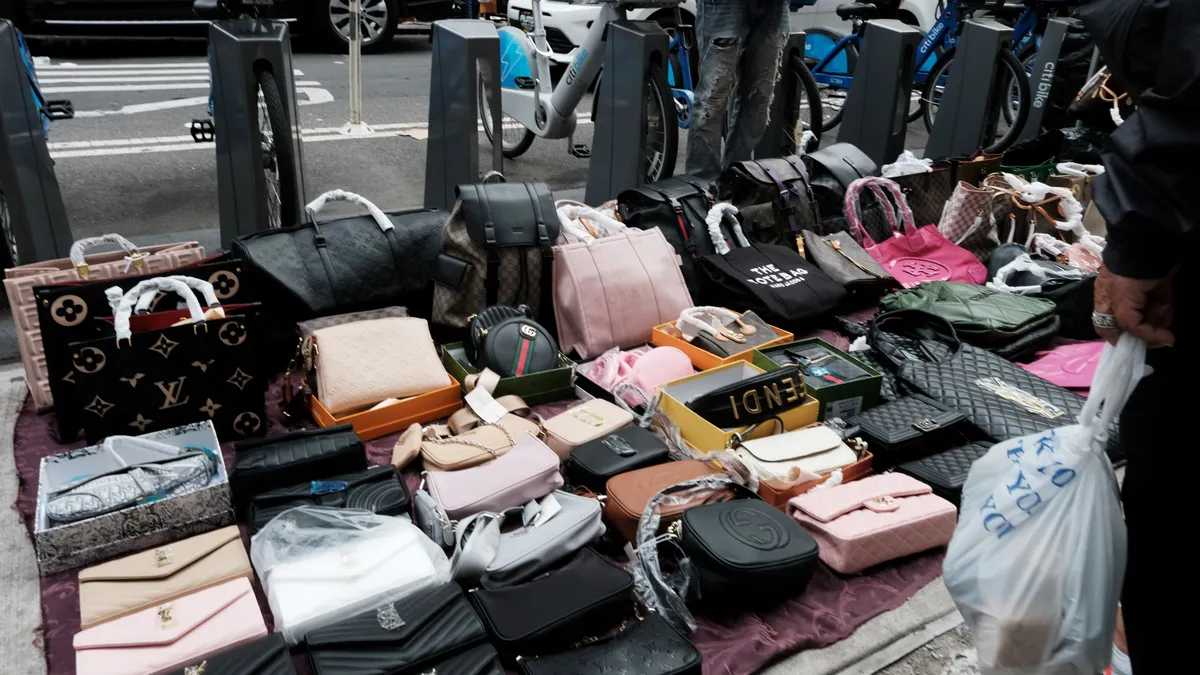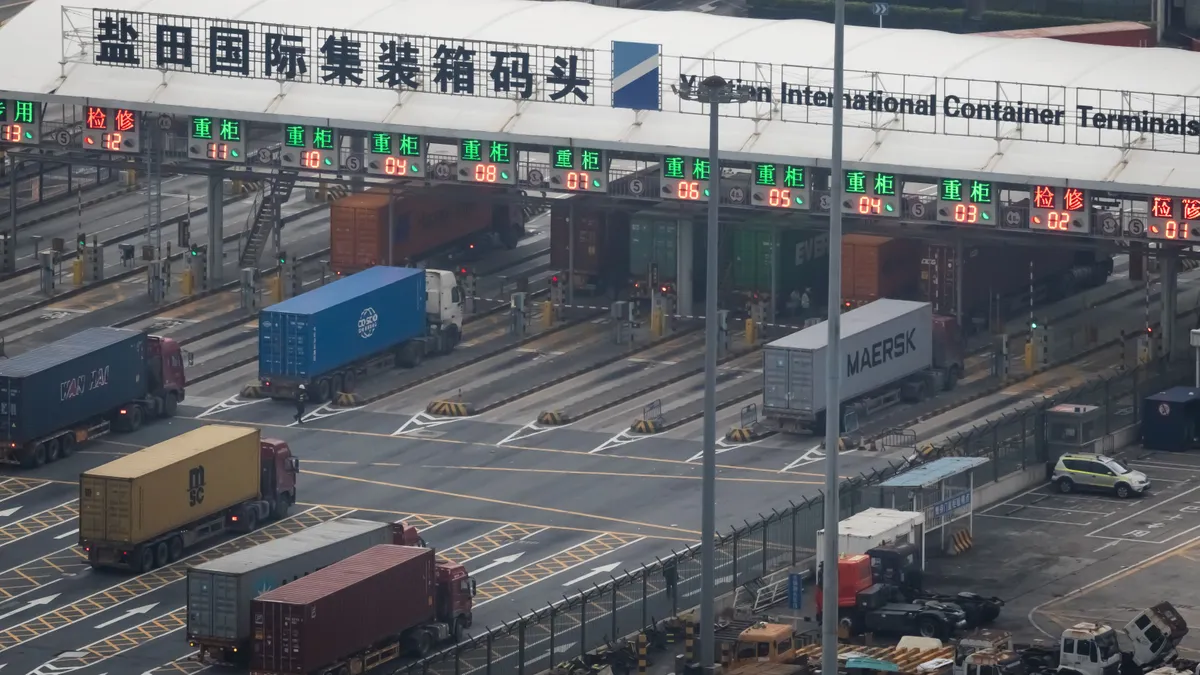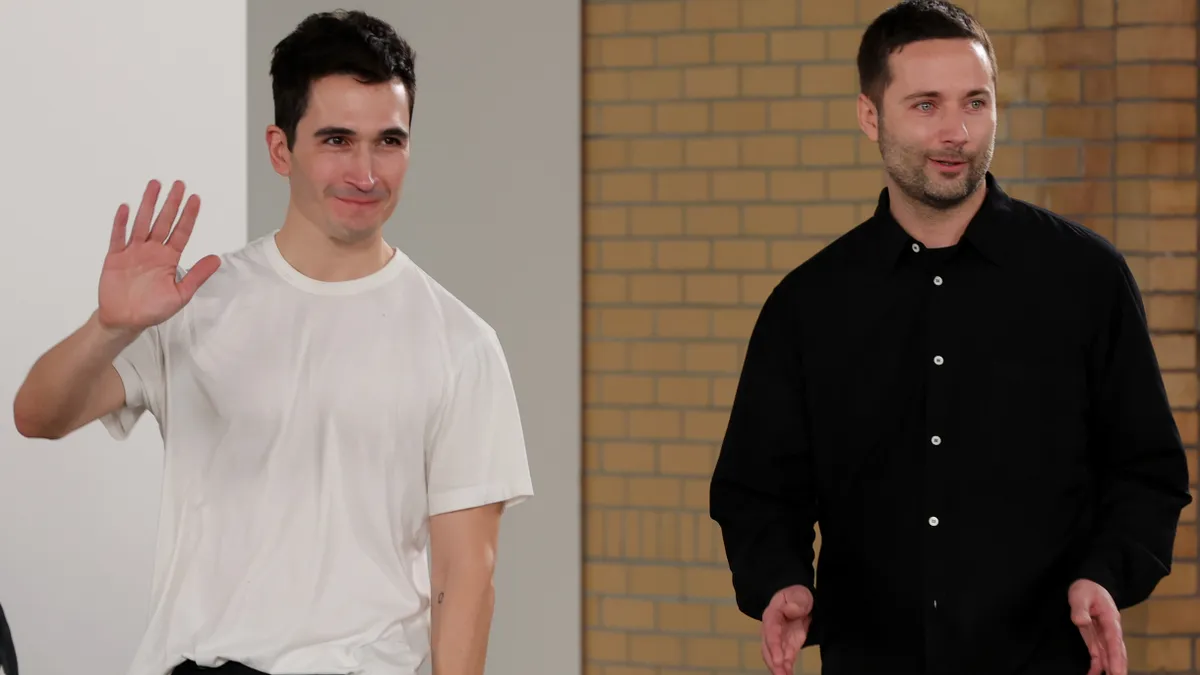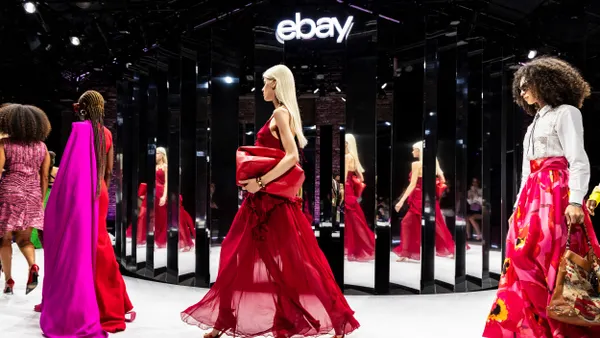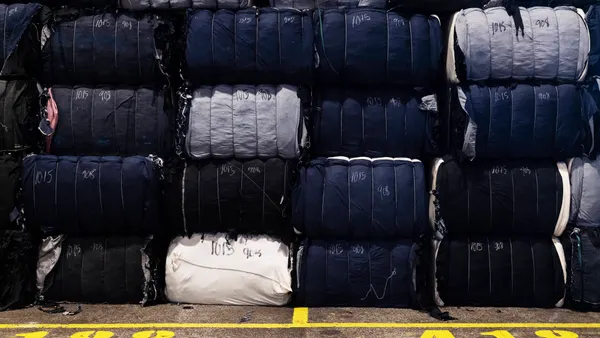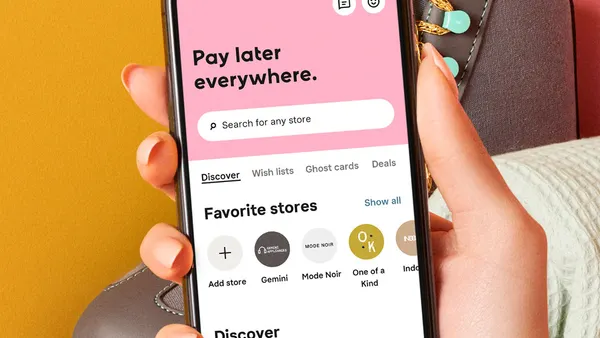Dive Brief:
- The volume of performance sneakers and luxury handbags being scanned for authenticity in the U.S. market is growing, according to a new report from authentication technology firm Entrupy.
- Based on findings from fashion stakeholders using Entrupy to scan their products, the number of tests for authenticity increased between 40% and 50% last year, or “by the millions,” according to company CEO Vidyuth Srinivasan.
- In 2024, brands using Entrupy scanned handbags and sneakers worth an approximate total resale value of $1.9 billion. The company’s software found 8.4% of products to be fake, or “unidentifiable.” While the percentage represented a small decrease from 8.9% in 2023, the increase in the volume of tests was indicative of a growing counterfeit market, according to Srinivasan.
Dive Insight:
Entrupy clients include retailers, resellers, wholesalers, pawn shops, online marketplaces and border and customs officials, per the company. Its 2024 State of the Fake report based its findings on the total unidentified volume of scanned products.
Out of the top five brands with the most fake products, Louis Vuitton led the luxury handbags category, with about 33% of the brand’s scanned products tagged as unidentified. Following Louis Vuitton were Prada, Gucci, Chanel and Saint Laurent. Chanel’s fake bags represented more than $500 million in total resale value, per the report.
“This is a serious problem that shows no signs of stopping and needs a more scaled approach if we have any hope of stopping the bleed between the counterfeit market and the legitimate one,” Srinivasan said in the report.
Just under half of all Entrupy submissions last year were from the Americas. Out of approximately $840 million worth of goods submitted by stakeholders, $68 million were tagged as unidentified. The majority of submissions — $640 million — came from the U.S., where $61 million worth of goods were found to be fake.
Entrupy launched its first report centered on handbags in 2020. Since its founding in 2016, Entrupy authenticated approximately $6 billion worth of goods, based on estimated resale value. The company began authenticating sneakers in 2023, and last year, found more than 10% of the products that were scanned were fake. This included Alexander McQueen sneakers, which turned up as unidentified 54% of the time.
“What stood out most is how rapidly the scale and sophistication of counterfeits are evolving,” Srinivasan said in an email. “We’re seeing a troubling uptick not just in volume but in the quality of fakes. Some fakes are so convincing that even seasoned professionals can’t tell them apart. The data shows that no category is immune, and that brands can’t rely solely on traditional methods of enforcement or deterrence anymore.”


